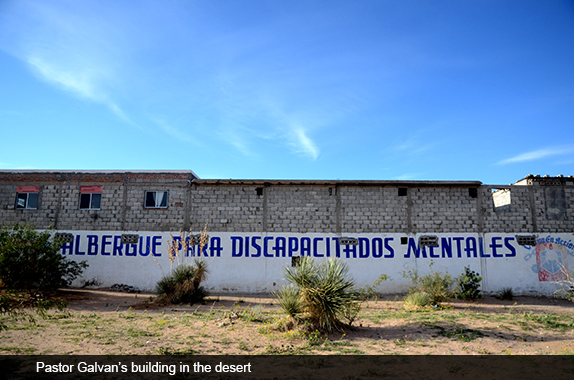
“Some people say that they are “basura humana” or human garbage but I feel that they are “tesoros escondidos” or hidden treasures, Pastor José Antonio Galván says of the one hundred mental patients in his asylum in the desert on the west of Juárez, Mexico.It’s been almost three years since my first visit with him, this imposing, quick witted, relentlessly optimistic man who has saved the lives of so many of Mexico’s mentally ill. We met through Chuck Bowden, the author of Murder City, immediately became friends and, in addition to visiting the asylum at least once a month, I help raise money, bring him clothing, candy and cigarettes as well as paint for his paint therapy program, and publicize his efforts via articles.
Born in Juárez 62 years ago, Pastor Galván married, moved to California, had four children and earned good money as a crane operator on large construction projects. Then he got involved in drugs, was deported and lived on the streets of Juárez until he had a religious conversion and devoted himself to caring for the mentally ill. About sixteen years ago, he acquired this old building in the desert and now cares for roughly 100 men and women. How he keeps this program afloat is astounding because he receives no government reimbursement; funding comes from families and donations. His belief is that these patients deserve not only safety and shelter but dignity and respect.
There are only two staff members, a handyman named Felipe (El Maestro) and an assistant named Beto. Another heroic man, Dr. Vicente Pantoja, the psychiatrist comes out every Sunday morning for which he is paid $50, if Pastor Galván has the money.
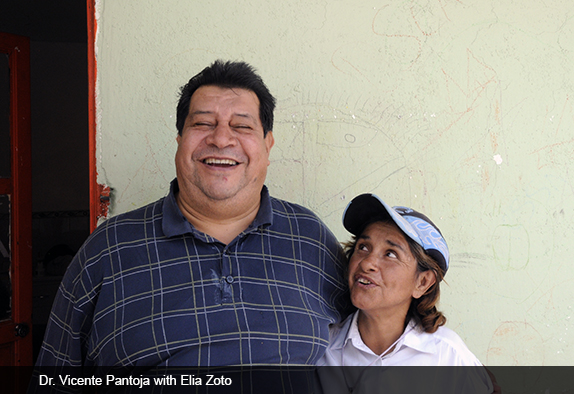
Therefore, the bulk of the work is done by patients. This includes helping prepare and serve the meals, washing the bedding and clothes and cleaning the living quarters, shaving, feeding, bathing and brushing the teeth of patients who can’t take care of themselves and caring for a growing number of chickens and pigs. Pastor is developing a farm, both for increased self-sufficiency and to create more work for the patients. Work and feeling productive is one way to reach dignity, he believes.
Unofficially, the patients do much more.
When a patient named Victoriano tried to gouge his eye out, patients wrapped him in blankets like a mummy so he couldn’t harm himself.
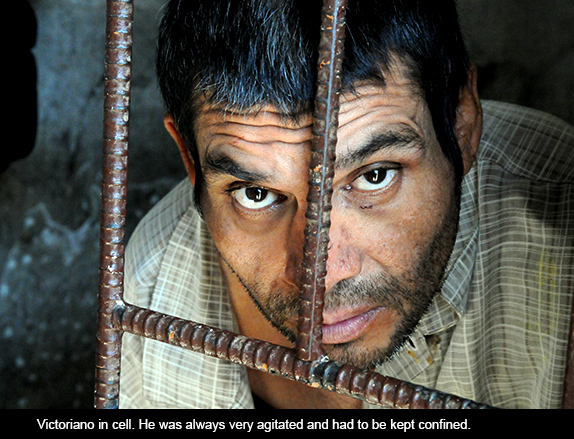
When an agitated woman named Marta was brought to the facility by the police, two tiny sisters named Elia and Leticia Zoto calmed her and made her feel welcome. Two months later she was sufficiently stable to return home.
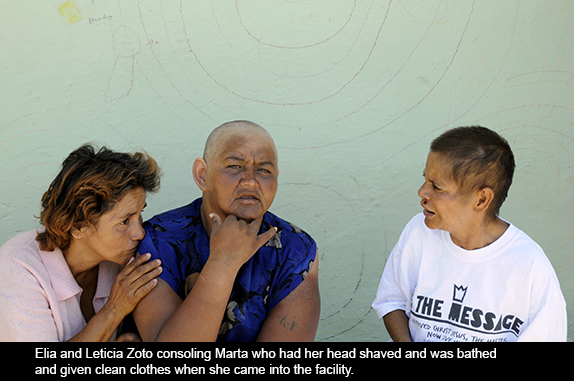
Arón Carrasco was a contract killer or “sicario” and spent more than half his life in prison, including the infamous “Islas Mujeres” prison in southern Mexico. He says that the asylum is the first place where he has ever felt that people truly cared for him; now he has become one of the key workers.
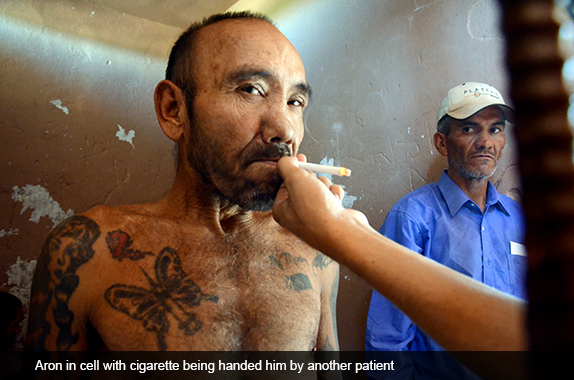
Josué Rosales was also born in Juárez and then went to California where he became an addict, joined the South Side gang and spent ten years in various California prisons including Folsom. When he was deported, he too lived as a street addict until the police brought him to the asylum in a stretcher, near death. He is now sufficiently recovered and trustworthy that he has been put in charge of dispensing the medications.
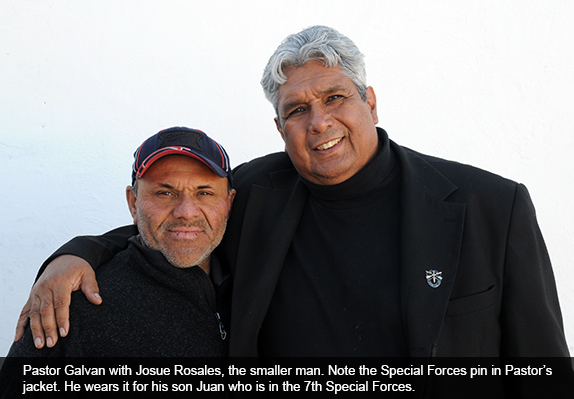
Several months ago, his daughter who he hasn’t seen for twenty years discovered he was in the asylum; they had a reunion last December in Tijuana and we hope to organize it again this year.
My monthly visits - rewarding but extremely intense – involve:
• Giving patients prints of photos of them I’ve taken on the previous visit. Photographs are a source of great pleasure.
• Taking whatever additional photos they want as well as those I need for articles I’m writing.
• Giving everyone a candy bar. This doesn’t sound like much but their diet, although ample, is very monotonous and the candy bar – a Mr. Good bar – is a source of great pleasure.
• Giving a cigarette to each smoker. Being a non-smoker, I was strongly opposed to this until I learned that one of the women patients had killed another woman over a cigarette. I then thought that it was better to be safe than sorry. Later I realized how calming one cigarette can be, especially when money for medications is always an issue. Again this becomes a moment of great pleasure for people who have so little.
The other thing that I provide is consistency. By showing up at least once a month, I’m someone who can be relied on which is something that many of the patients have never experienced.
Although the facilities are more primitive than what we would see here, Pastor Galván, through contacts of Chuck Bowden’s, has received a grant from a foundation in Italy to build additional housing for the women patients. The key, however, is neither facilities nor staffing. It’s the sense of family, caring and dignity that Pastor Galván has created. This is more powerful than money and this is how he is saving lives and curing the mentally ill.



Responses to “Hidden Treasures”